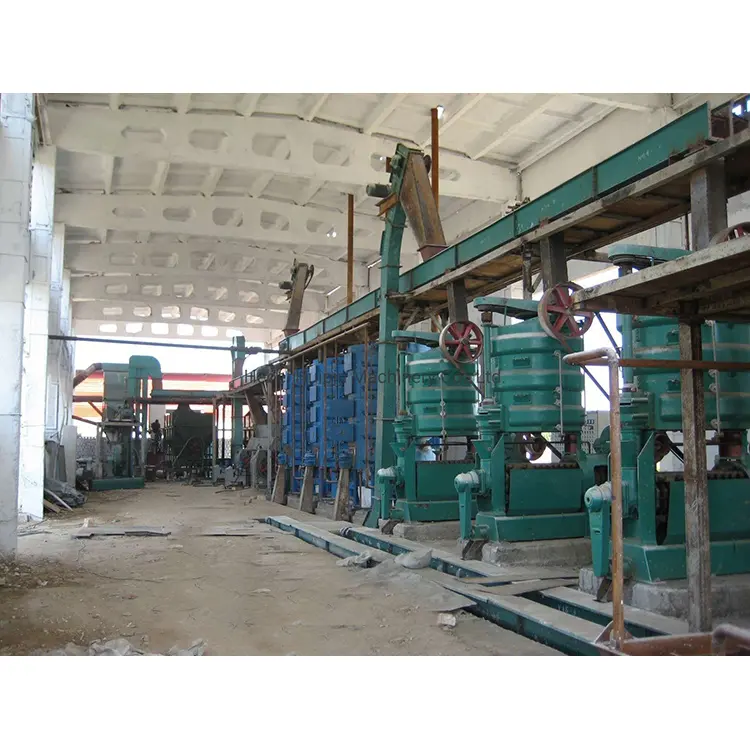Ное . 22, 2024 23:11 Back to list
best screw worms of oil press
The Best Screw Worms for Oil Pressing An In-Depth Analysis
Oil pressing is an essential process in various industries, notably in the production of cooking oils, biodiesel, and cosmetic products. One of the most crucial components affecting the efficiency and quality of oil extraction is the screw worm. This article explores the best types of screw worms for oil pressing, their features, advantages, and applications.
Understanding Screw Worms
Screw worms, also known as screw presses, are mechanical devices designed to extract oil from seeds and nuts. The mechanism involves the use of a screw conveyor that crushes the oil-bearing materials while applying pressure to force the oil out. The design and material of the screw worm play a pivotal role in determining the efficiency and quality of oil extraction.
Types of Screw Worms
There are several variations of screw worms designed for different types of oilseeds, including
1. Single-Screw Presses These are the most common and simple type of screw presses. They are effective for processing a variety of seeds and exhibit ease of operation and maintenance. However, their extraction efficiency may vary depending on the seed type.
2. Double-Screw Presses As the name suggests, these machines feature two screws working in tandem. This design increases the pressure on the seed material, enhancing oil yield compared to single-screw presses. Double-screw presses are particularly efficient for seeds with high oil content and can produce higher-quality oil.
3. Expellers with Heated Components Some screw worms incorporate heating elements that preheat the seeds before pressing. This technique can improve oil extraction rates and enhance the overall quality of the extracted oil by breaking down cell walls and reducing viscosity.
Key Features to Consider
When selecting the best screw worm for oil pressing, several features should be taken into account
- Material Construction High-quality materials such as stainless steel or hardened steel contribute to the durability and longevity of the screw press. These materials can withstand wear and tear while providing resistance to corrosion.
- Screw Pitch and Diameter The dimensions of the screw significantly impact the pressure and shear force applied to the seeds. Optimal screw pitch and diameter can maximize oil yield while minimizing residual cake.
best screw worms of oil press

- Heating Mechanism Integrated heating systems can enhance oil recovery and improve the quality of the oil by reducing the breakdown of sensitive compounds during pressing
.- Versatility An ideal screw worm should be versatile enough to process a variety of seeds and nuts, accommodating the needs of different oil production operations.
- Ease of Cleaning and Maintenance A design that allows easy disassembly and cleaning can greatly enhance operational efficiency and prolong the lifespan of the equipment.
Advantages of Using Quality Screw Worms
Utilizing high-quality screw worms in oil pressing has several benefits
1. High Oil Yield Efficient screw worms can significantly enhance the oil extraction rate, thus increasing profitability for producers.
2. Quality of Oil Quality screw presses result in higher-quality oil with better flavor, aroma, and nutritional profile, appealing to health-conscious consumers.
3. Reduced Energy Consumption Advanced screw designs minimize energy use during oil extraction, contributing to sustainability efforts and reducing operational costs.
4. Lower Residual Cake A well-designed screw worm effectively reduces the oil content left in the residual cake, ensuring optimal usage of raw materials.
Conclusion
In the ever-evolving world of oil extraction, the choice of screw worm is paramount to achieving efficiency, quality, and profitability. Single-screw and double-screw presses each have their respective advantages, with double-screw presses offering higher yields for high-oil-content seeds. Considering factors such as material, design, and versatility can significantly impact production outcomes.
Investing in the best screw worms not only enhances oil extraction efficiency but also positions producers to meet the rising demand for quality oils in both food and industrial applications. As sustainability and quality remain at the forefront of consumer preferences, the right equipment will empower oil producers to thrive in a competitive marketplace.
-
HP290 First Press Oil Expeller Machinery: Efficient Oil Extraction
NewsAug.02,2025
-
Top Food Oil Refined Unit Companies w/ GPT-4 Turbo Tech
NewsAug.01,2025
-
Premium Black Seed Oil Expeller - High Efficiency Cold Press Oil Machine
NewsJul.31,2025
-
Oil Processing Equipment - High-Efficiency Flaking Machine
NewsJul.25,2025
-
High-Efficiency Peanut Oil Refined Machine for Quality Oil Production Leading Exporters & Companies
NewsJul.08,2025
-
High Efficiency Sunflower Seed Oil Press – Leading Cooking Oil Press Machine Factories & Suppliers
NewsJul.08,2025
